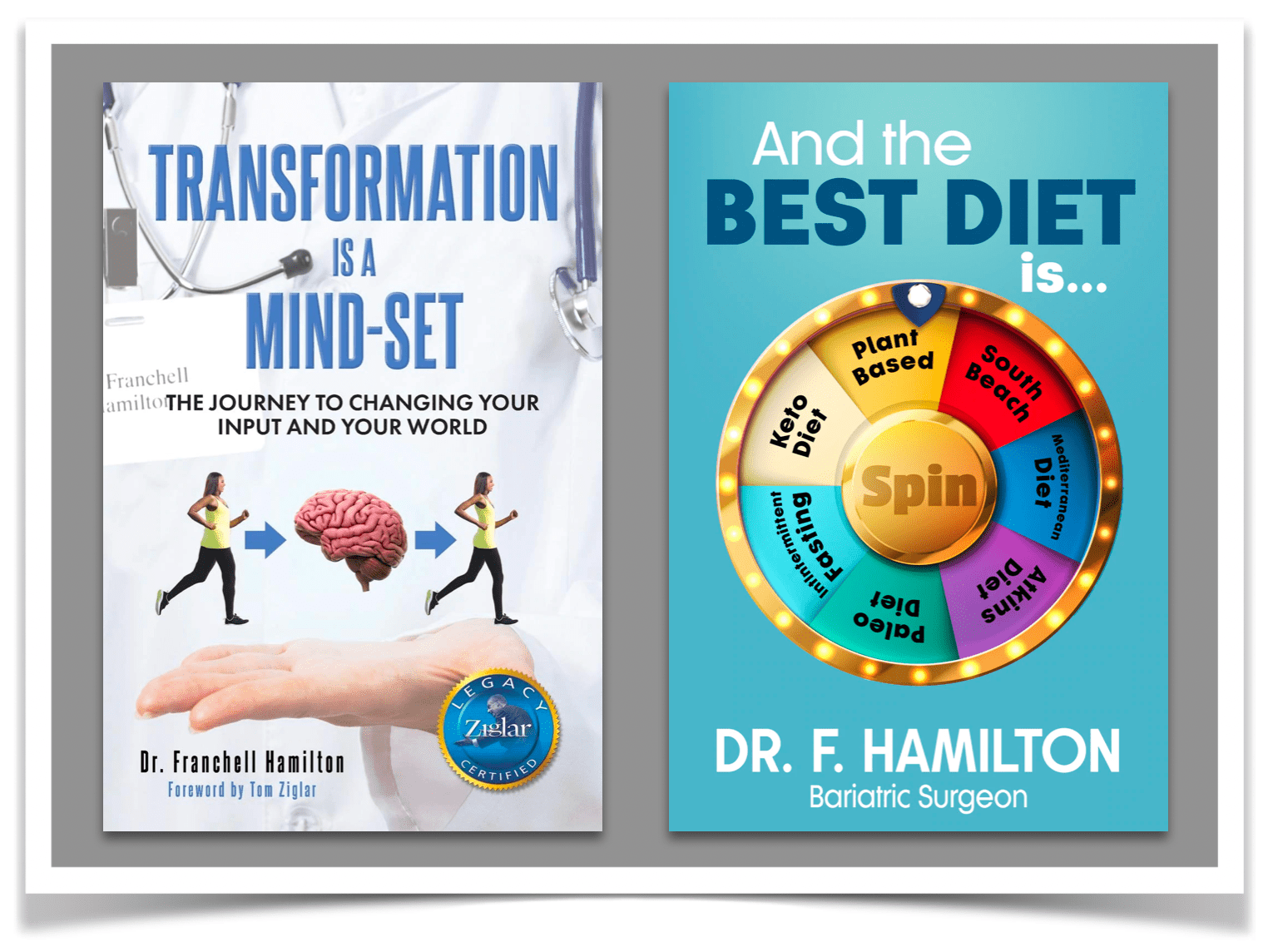Available for Interviews: Dr. Franchell Hamilton
Dr. Franchell Hamilton, MD, FACS, FASMBS, FOMA, is the Founder of NeuroSwitch™ Weigh Loss–a place for people to receive treatments ranging from bariatric surgery and medical weight loss to hormone therapy. Dr. Hamiltion recently released, Curiosity is the Best Weight Loss Medicine: Observations from a Bariatric Surgeon.
What Dr. Hamilton could say on
Tracking Our Calories:
It seems everyone is tracking their calories these days. And there are so many popular apps out there to help you do it, too. But does this work? Is it healthy to do so? Can it be effective over the long haul?
-
- Tracking is good in the short-term to bring about awareness of the food we’re eating, but long-term it can lead to shame and guilt.
- Most people cannot do this for long periods of time and it is a habenula/failure trigger—an area in the brain that triggers failure because you can not meet the “goal.”
- Many people who tracked and had to report it to a health coach, provider, or other were found to lie about their tracking due to feelings of shame.
- Tracking may be helpful for awareness but can lead to harmful negative feedback when goals are not met.
- Studies reveal that restrictive eating and dieting may lead to future weight gain due to your body’s physiological responses to such behaviors, such as changes in hunger and fullness hormones.
Instead
-
- Instead of tracking calories, practice better habits.
- Get moving! Incorporate exercise that you actually enjoy so you will be more inclined to do it consistently.
- Focus on stress management to avoid emotional eating.
- Get proper rest. People who have healthy sleep habits tend to be thinner, while a decrease in sleep leads to an increase in food intake.
- Changing the narrative and thoughts in our head can change our outcomes because it changes our outlook and perspective.
- You may need to see a professional to address any underlying health issues that may be causing excessive weight gain.
Tracking calories is just not a healthy activity. It leads us to be negatively obsessive over weight loss rather than working on being healthy and happy. We have learned a lot about weight loss over the years; calories in the food we eat are but just one aspect.
Where people can learn more about how to stop the regain and maintain weight loss:
STOP THE REGAIN
Interview: Dr. Franchell Hamilton
Dr. Hamilton is a Triads Award-Winning, Board Certified Surgeon who gave up operating on the stomach to operating on the mind to treat chronic conditions such as obesity and diabetes. Dr. Hamiltion recently released, Curiosity is the Best Weight Loss Medicine: Observations from a Bariatric Surgeon. She is also the author of two other books; Transformation Is a Mindset: The Journey to Changing Your Input and Your World and And the Best Diet Is . . . .
Dr. Hamilton is passionate about helping to change the lives of those she meets through practicing medicine and consulting. As a once-practicing bariatric surgeon, Dr. Hamilton has firsthand experience addressing the challenges and pain points of patients being treated for cardiometabolic diseases. She founded NeuroSwitch™ Weigh Loss—a place for her patients to receive treatments ranging from bariatric surgery and medical weight loss to hormone therapy.
Dr. Hamilton is a podcast host on Your Health Transformed that discusses a variety of popular and innovative health topics to challenge our current way of thinking about medicine.


Jo Allison
Managing Editor
Director of Public Relations
MEDIA AMBASSADORS
Success In Media, Inc.
Jo@SuccessInMedia.com
